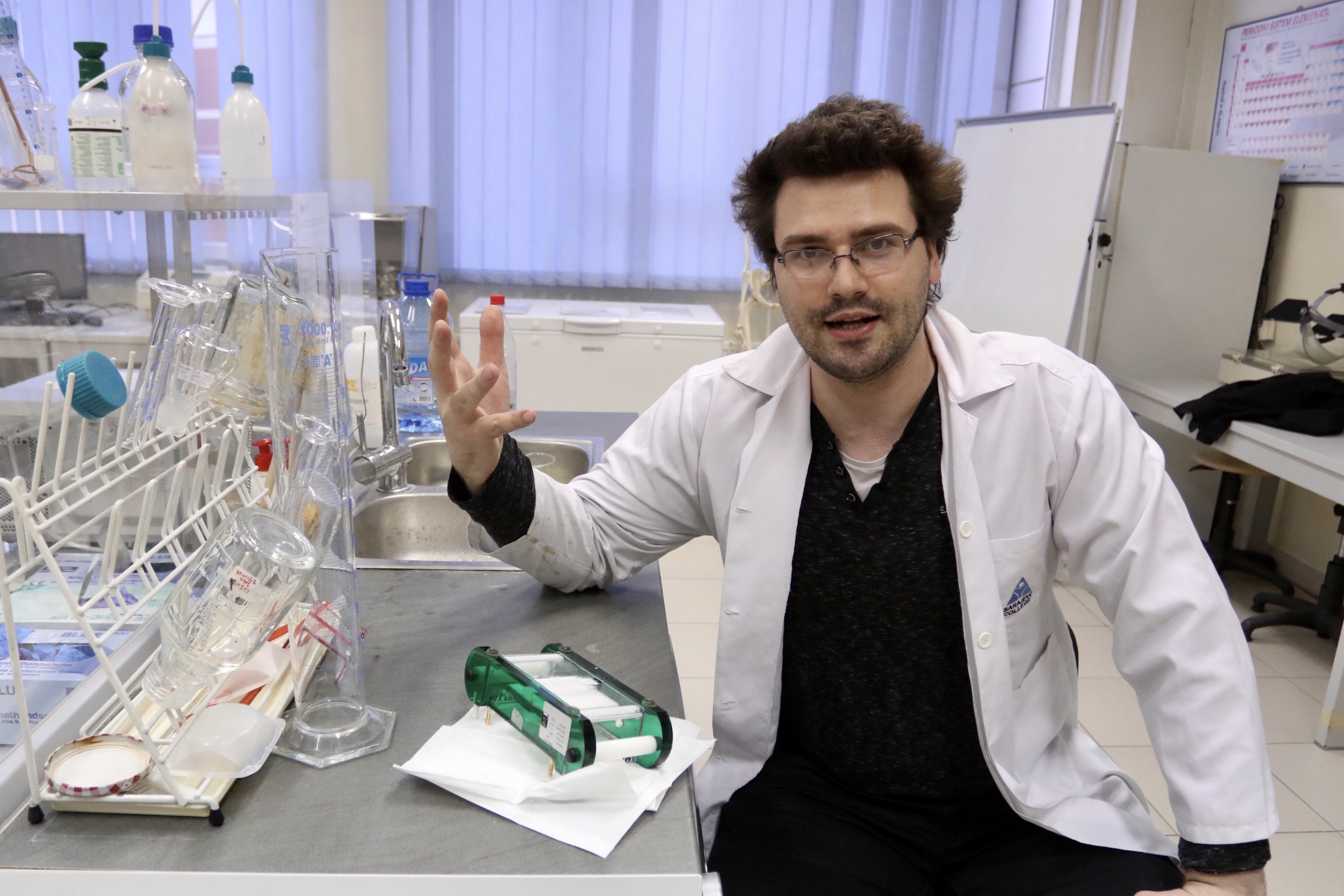
Overcoming Hardship on a Medical Research Path
As a young student in Bosnia, Kenan Kraković found biology to be the single most boring subject of them all. “Memorize this plant, classify that mushroom, learn a bunch of big words, I kind of hated it,” he recalls, “which is a tiny bit ironic, given that now I am studying at the alma mater of Carl Linneaus.”
It was only when Kraković realized that science was more than memorization that he embraced it. Now a graduate student in innovative medicine at Uppsala University in Sweden, Kraković’s path in bioscience has been a long one, including two years in which he gave up his educational ambitions due to personal hardships. His 2019 Amgen Scholars experience at Karolinska Institutet solidified his passion for science and his desire to pursue a PhD.
ASP caught up with Kraković to learn more about this journey.
ASP: First, how have you been doing during the pandemic?
Kraković: I am alright now, but I would be lying if I said that it has not negatively affected me. It was a large period of isolation and many people close to me were affected by the disease and some of them are not with us anymore. I am doing my best to try to get back into the routine, and I believe I’m on a good track. I am in Sweden now at the Uppsala University for my second year of master´s and I get to be in the lab every day, so that helps. Having close contact and collaboration with other scientists helps, discussing science on a daily basis and just working towards something together helps. So, things are on the right track and I hope it stays that way for a long time.
ASP: Can you share some of the story about the challenges you faced in your educational path?
Kraković: Yes, I almost completely gave up university education. Going back to 2015, I enrolled as a physics student in Vienna, Austria, but due to complicated family circumstances, I ended up homeless.
For quite some time, I played guitar on the streets of Vienna, trying to earn enough to figure out how I was going to continue living there and balancing money – time – being alone and homeless with the start of the studies, but at some point I realized I couldn’t keep living this way, so I came back to Bosnia.
I gave up any university ambitions. For the next two years, I worked to sustain myself, my mom and sister, doing everything from being a waiter in a rock club to giving private science classes and being an online English teacher.
Once my family and I hopped back on our feet financially, my long-forgotten academic goals just hit me in the head one morning and I wanted to go back to university. My family supported me and I restarted my studies, now as a genetics and bioengineering student.
ASP: What was your favorite part of the Amgen Scholars Program at Karolinska?
Kraković: I had wonderful supervisors. The postdoc who supervised me at the time in the Karolinska neurobiology department loved discussing science and philosophy, and sometimes even politics during coffee breaks and was very kind to all of the students. Those were moments I deeply appreciate even now.
ASP: What did you decide to do after your undergraduate studies?
Kraković: Approaching the end of my BSc studies in Sarajevo, I was notified, pretty much at the same time, that I was selected for both the DAAD masters degree scholarship in Germany and the Erasmus Mundus Joint Degree scholarship for the two-year International Master in Innovative Medicine at University of Heidelberg and University of Uppsala.
I opted for the Erasmus program, and after the first year spent in Germany and working on liver organoids and their applications in hepatitis virus research, now I am doing an internship in a neuroscience-focused lab, using Drosophila melanogaster (the fruit fly) as a model organism.
Life very often turns around completely and we end up imagining different trajectories for the future every now and then. But I definitely never imagined the course of events in this peculiar “homeless-to-Harvard” way.
ASP: What are you working on now?
Kraković: At the moment, I am investigating the fruit fly as a model for depression-associated behaviors in the lab of Professor Helgi Schioeth. The lab is also working on behavioral methodology development, so being involved in that aspect of the project is a useful experience as well.
I recently got admitted to perform my master thesis work in a wonderful Drosophila neuroscience lab at Harvard Medical School. This is a lab that recently discovered the main cause of shortened lifespan upon sleep deprivation, and it’s just super exciting for me to be able to work on that topic in a group that’s making strong contributions to the field.
On this short-but-wonderful journey so far, the Amgen Scholars Program was certainly one of the most important steps that helped me get this far.
ASP: What do you think most prepared you from Amgen Scholars for your current work?
Kraković: The Amgen Scholars Program allowed me to see what a complete project at a well-run lab looks like, from the literature search to hypothesis testing and preparing the conference poster. Being involved in the program really helped me cement my decision to to pursue a PhD.
ASP: What advice do you have for Amgen Scholars?
Kraković: I hope my story is an advice in itself: You never know where life will take you or where you will take your life, so try to be patient through hardships.
Life very often turns around completely and we end up imagining different trajectories for the future every now and then. But I definitely never imagined the course of events in this peculiar “homeless-to-Harvard” way.

